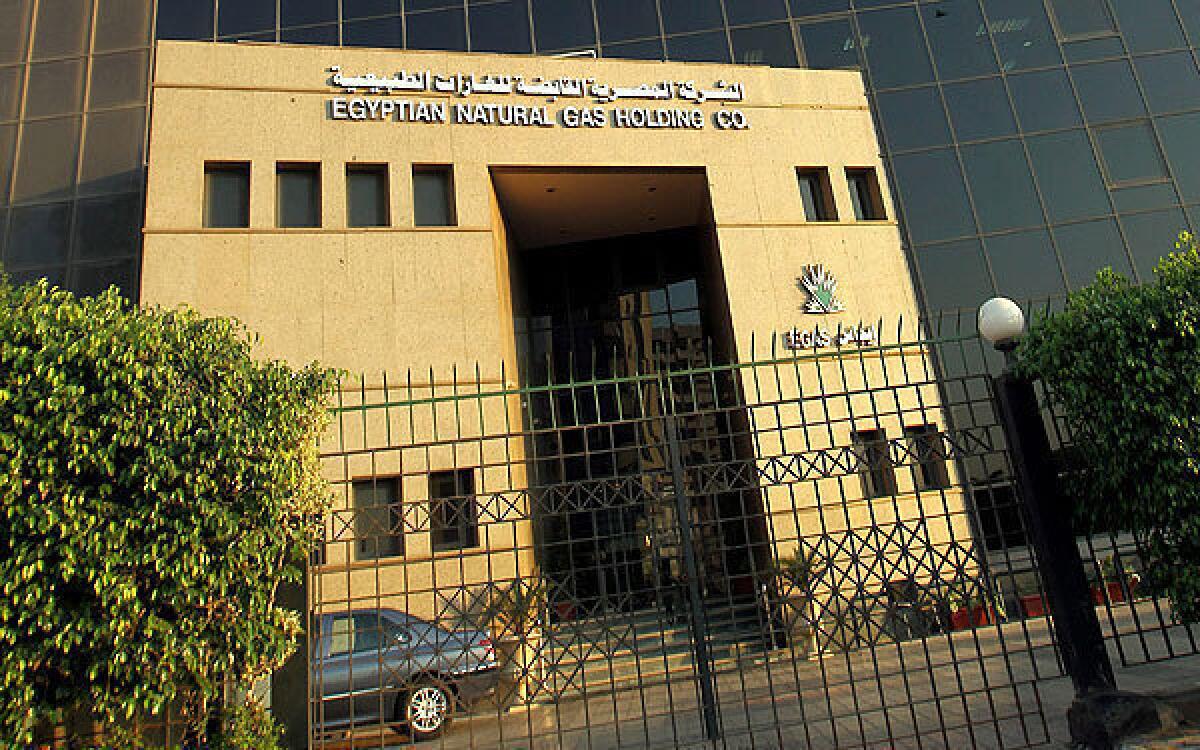Egypt-Israel natural gas deal revoked for economic reasons

- Share via
JERUSALEM — Amid the collapse of a multibillion-dollar natural gas agreement between Egypt and Israel that had been in place since 2005, officials from both countries stressed Monday that the dispute was a commercial one and did not reflect political tensions.
But observers viewed the contract spat as the latest sign of souring relations between the two countries and said it could threaten the long-term viability of their historic 1979 Camp David peace accord.
Tensions between the two countries have been rising since the ouster last year of Egyptian President Hosni Mubarak, who maintained close ties with Israel despite the relationship’s unpopularity with the Egyptian public. Critics claimed that Mubarak gave Israel below-market rates for the gas, which meets about 40% of Israel’s needs.
Over the last year, Israel has scrambled to offset declining deliveries from Egypt by increasing its domestic production, but energy officials warn that a complete termination of supplies from Egypt may lead to power disruptions this summer.
The deal also provided much-needed revenue to Egypt, whose economy has been sinking since its tourism industry collapsed after last year’s violence and instability.
“The decision we took was economic and not politically motivated,” Mohamed Shoeb, head of the state-owned company EGAS, told reporters Monday. “We canceled the gas agreement with Israel because they have failed to meet payment deadlines in recent months.”
Israeli officials denied violating the terms of the agreement. Israeli Prime Minister Benjamin Netanyahu said Monday that he did not “see this cutoff of the gas as something that is born out of political developments.”
But Israeli opposition leader Shaul Mofaz called Egypt’s decision to cancel the contract “a new low in the relations between the countries and a clear violation of the peace treaty.”
The gas deal has been under scrutiny for months and shipments were interrupted more than a dozen times because of sabotage and explosions along the pipeline through the Sinai peninsula.
Egyptian political and religious figures have called for termination of the contract and Mubarak is facing criminal charges over the deal, which critics say was a symbol of corruption.
Among the investors in one of the private companies involved in the gas deal is Sam Zell, chairman of Tribune Co., the parent company of the Los Angeles Times.
Amro Hassan of The Times’ Cairo bureau contributed to this report.
More to Read
Sign up for Essential California
The most important California stories and recommendations in your inbox every morning.
You may occasionally receive promotional content from the Los Angeles Times.













